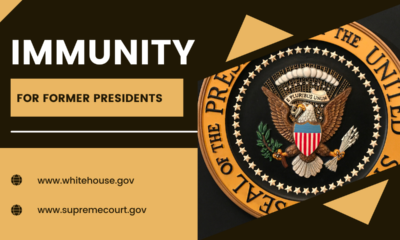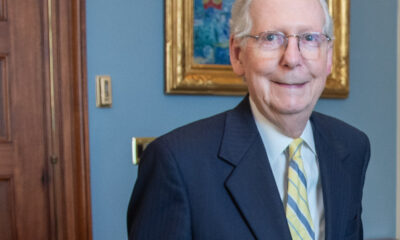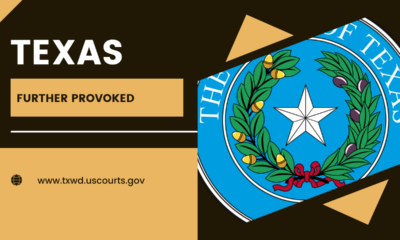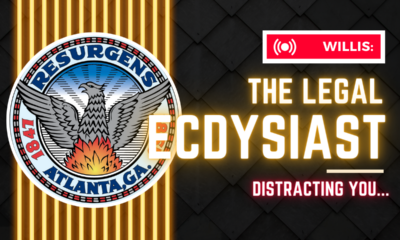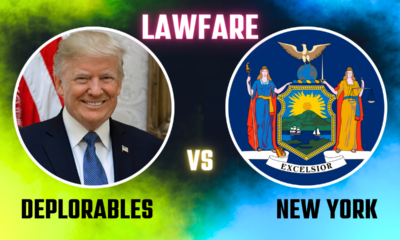Constitution
Why Chris Christie is mistaken

Governor Chris Christie (R-NJ) mistakenly equates the Tea Party Movement with “Occupy Wall Street.” Why? Because he neglects political philosophy.
What does political philosophy deal with?
Political philosophy deals with what government is, what it does, and why it does these things. Political philosophy reflects ethics—the study of values and, by extension, moral judgments. Ethics in turn derives from metaphysics (literally, after nature): the study of nature, including the nature of man, and of everything that follows from that nature.
Political philosophy tells us what government does and ought to do. The size of government is secondary. To paraphrase Frank Lloyd Wright, size follows function.
Most people neglect philosophy almost completely in their education, and political philosophy most of all. Observe the consequences today. Government has grown to a size that the Framers of the Constitution never imagined. This growth came in steps, each one lasting long enough for men to say that tradition assigns a particular function to government. When people forget a time when government did not perform a function, they accept that function as proper. Political philosophy tells them whether they should accept it—or not.
Does Chris Christie have a political philosophy?
Chris Christie has never made clear whether he has a political philosophy or not. He once told Tom Moran of The Star-Ledger (Newark) that he favors smaller government and lower taxes. (That was the day he famously called Moran “The Thinnest-skinned Guy in America.”) But no one has ever asked him: smaller than what? Lower taxes than what? Smaller and lower than they are today—perhaps. But how does he decide what size of government, or what amount of taxes, is correct? Without political philosophy, he can’t decide. Neither can anyone else.
And when he equated the Tea Party with Occupy Wall Street, he showed that he does not care to decide.
How does Chris Christie fail to decide?
Governor Christie said that the inability, or refusal, of government to decide what to do, frustrates both movements. Read again what he said:
You have a president who is unwilling to drag people into the same room and bang heads and enforce solutions, you have a Congress of both parties who won’t talk to each other, won’t have a civil word for each other to get anything done. Yet at the same time we have people out in the country who are suffering, and they are playing games in Washington, D.C.
And what does he say that the man now holding office as President should do, that he is not doing? He speaks of knocking heads together. This is a metaphor for enforcing unity of command. But Christie does not say what the federal government can, or ought to, do to relieve this “suffering.” To do that, he must choose—and political philosophy informs any choices that any politician, or voter, makes.
The contrasting political philosophies of the Tea Party and Occupy Wall Street
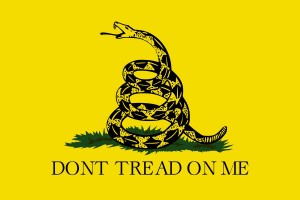
Christopher Gadsden's "Don't Tread On Me" flag, the unofficial symbol of the Tea Party movement. Photo: User VIkrum/Wikimedia Commons, CC BY-SA 3.0 Unported License
If he were to apply political philosophy correctly, Christie would never equate the Tea Party and Occupy Wall Street. The Tea Party movement starts with the Constitution of the United States. Furthermore, its activists try to understand the political philosophies of those who wrote it. That understanding goes further than why American government, from the federal down to the municipal, divides its powers. It describes what powers the government ought to have. To be sure, the Constitution is not perfect. It assigns many powers that the government ought not have. The Framers gave the government the power “to establish post offices and post roads,” for example, only because millennia of tradition demanded it. That tradition goes back to the Persian equine express, of which Herodotus famously said:
Neither snow, nor rain, nor heat, nor gloom of night stays these couriers from the swift completion of their appointed rounds.
Few indeed have asked whether those couriers ought to be private entrepreneurs, not government agents. That’s because few have asked whether the government has an inherent duty to carry mail. And those few have asked whether a government that carries mail can censor mail.
Occupy Wall Street doesn’t worry about such things. If they have any guiding political philosophy at all, then it comes from The Communist Manifesto.
Workingmen of all countries, unite!
Beyond that, they think the government ought to have the authority to decide who has made enough money, and who has made too much. The clue: several OWS protesters have followed the advice of Roseanne Barr, who says that the government ought to behead “rich” people. Anyone who stands by that, must also want the government to say who has the right to be “rich” (and how rich), and who hasn’t.
Conclusion
What compromise is possible between two groups having such disparate philosophies? What mission can a government with such disparate elements in it agree on? And what good is unity of command when the “commanders” cannot even agree on the basic mission?
But before anyone can even try to agree on a mission, everyone must decide what that mission ought to be. Only proper attention to political philosophy will give anyone a clue. Without that, one sees a (perhaps) well-meaning governor suggest that someone “knock heads together” when the best thing that can happen is that those “heads” keep arguing.
One political philosophy or the other must prevail. The only question left to answer is: which one?
Related
- Chris Christie makes big mistake
- Chris Christie less likely to run
- Chris Christie might not run
- Is Governor Chris Christie a Trojan horse?
- Chris Christie for President?
- Chris Christie has a Muslim problem
- Chris Christie Rebukes Supreme Court
- Chris Christie still an AGW alarmist
ARVE Error: need id and provider
[amazon_carousel widget_type=”ASINList” width=”500″ height=”250″ title=”” market_place=”US” shuffle_products=”True” show_border=”False” asin=”B00375LOEG, 0451947673, 0800733940, 0062073303, 1595230734, 1936218003, 0981559662, 1935071874, 1932172378″ /]
Terry A. Hurlbut has been a student of politics, philosophy, and science for more than 35 years. He is a graduate of Yale College and has served as a physician-level laboratory administrator in a 250-bed community hospital. He also is a serious student of the Bible, is conversant in its two primary original languages, and has followed the creation-science movement closely since 1993.



